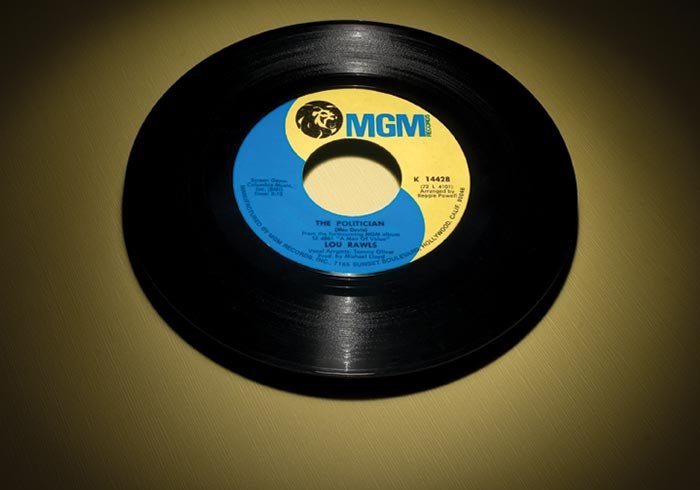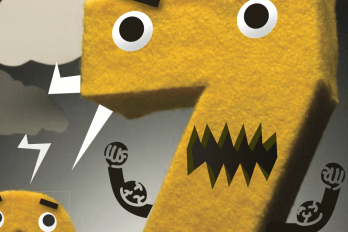1992 I was pacing. The good Senator, the political incarnation of an aging game show host on a talent search, was on the hunt for fresh meat to run as Liberal candidates in the next election, and he wanted to see me.
It doesn’t usually just happen to you out of the blue, however. You are seldom plucked out of obscurity to serve; you do it to yourself. I had dropped more than a few hints over the years that I might be interested in running, had paid my dues working on the executive of the local riding association, and had attended the requisite number of brain-numbing policy conventions where earnest young women and men (like me) bashed heads over resolutions adopted at plenary sessions, printed in glossy summaries, and promptly forgotten. Still, I had done things to get myself noticed, and I asked people close to the newly elected party leader how my candidacy might be received. A law school classmate and adviser to the leader said party headquarters would be “okay with my candidacy”—not exactly a ringing endorsement. And yet, and yet, I was flattered that the Senator wanted to see me—me, when there were so many potential big name candidates.
I might have asked myself why no one else wanted to run, and I did. Our prospects were dim, and I was a nobody. Were fresh-faced recruits ordered to go over the top against the vicious Hun in the First World War equally flattered? I wondered. But I was young, politically witless, really, and I wanted to get involved, wanted to make a difference, and was drawn to this roiling adventure. Also, I couldn’t keep criticizing the calibre of people in government without offering myself up. And now the Senator wanted to see me. I was attracted and repelled (okay, more attracted than repelled), like a testosterone-pumped sixteen-year-old being cruised by a hooker in a cheap bar.
My wife and I went over the plan. She would stay upstairs with our young boys while I sat with the Senator. “We’ll see how things go,” I said. “Probably a good idea for him to meet you, maybe even the boys,” I added. (Translation: he’ll need to size up how we’ll look in the campaign literature.)
The doorbell rang—the Senator, ebullient, all smiles and twinkling eyes, gave me a firm handshake. “So good of you to ask me over—great place you have here,” he announced, deftly turning the tables. (He had asked to see me—invited himself over, actually.) We chit-chatted. It was fluid and warm, but my anxiety was rising. Finally, he gracefully edged toward the question: “You know there’s an election coming next year, and…” Just then, the bone-chilling scream of a child wailed through the house, abruptly followed by my wife yelling, “Oh, shit!” “Is everything okay? ” asked the Senator. “Oh, I’m sure it’s all under control, please go on.” Another shriek, and the sound of obvious commotion overhead. “Perhaps I’ll just go see if I’m needed,” I said. “It shouldn’t be more than a moment.”
I left the family room casually, then bounded up the stairs. “What the hell is going on? ” I blurted out, heading into the bathroom. My five-year-old was cowering. With a large spoon and a knife in one hand and a Tupperware container in the other, his mother was trying to coax him off the toilet. My son looked as though he was about to be circumcised again. “What is going on? ” I hissed. “I need to get a stool sample for the pediatrician,” my wife replied. “You know he’s been sick, but he won’t let me at it. Can you please help? ” “Why didn’t you tell me about this, and do we have to do this now? ” I shouted. “I did tell you,” she responded icily. “Yesterday—but you weren’t listening. And, incidentally, Mr. God’s gift to politics, I can only get a stool sample when he wants to go. You can’t command it, you know, not even you!” The spectacle of bobbing for shit while the Senator sat waiting was too much. I fled back downstairs.
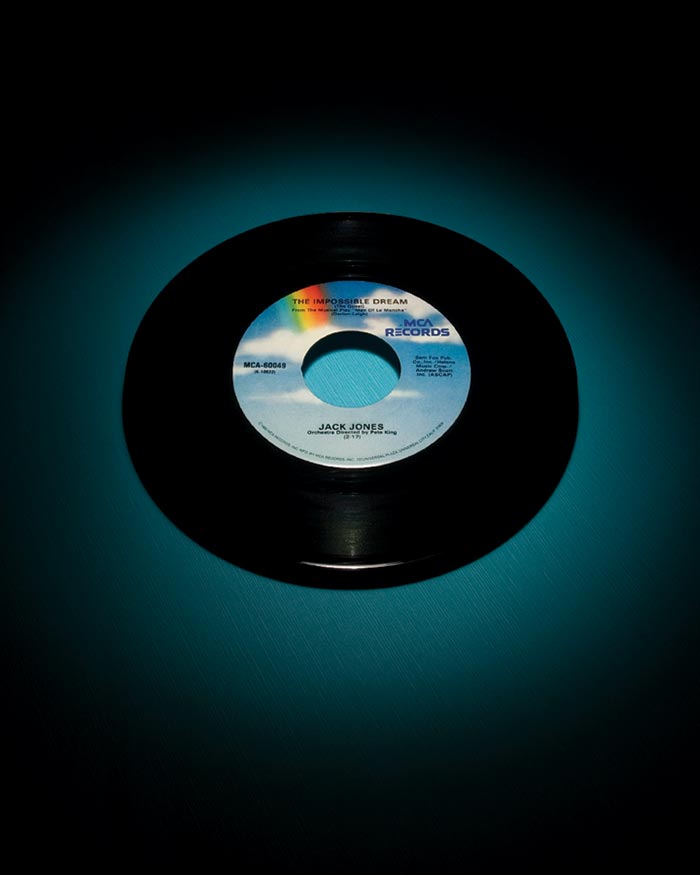
Some things are omens, and this might have been the trailer for Eager Young Thing Goes to Ottawa—spouse and lads on their own, up to their elbows in shit, God’s gift to politics puts himself front and centre as the future beckons. The Senator was pacing—rethinking my candidacy, I worried? There it is, the first sign of a politician born: it’s always about you. “Perhaps we should continue this some other time,” he said, glancing at his watch. “No, no, please sit down,” I pleaded. He leaned toward me. “With an election next year, we were wondering if you had an interest in being a candidate for us in the St. Paul’s riding. There would be a contested nomination, but you shouldn’t have any problem with that. A contested nomination is better anyway—too much baggage if you are parachuted in.” “But the external affairs minister is the current MP for the area,” I observed. “Well, yes,” he said, “but if you can knock her off, they’ll call you a giant killer. I’m off to the baseball game. Think about it.”
Realizing now that the Senator was mostly concerned about not being late for the Blue Jays game, I stammered, “If you could just wait a minute, I’ll get my wife. She wants to meet you,” I lied. “Oh, dear,” I yelled upstairs in my sweetest come-hither voice, “the Senator wants to meet you,” I lied again. She came downstairs, shook the Senator’s hand, and said hello. He said, “Your husband is a hell of a guy, a hell of a guy. He could be a great candidate. He’s got a great future.” “He sure does,” she replied in a faraway voice. “Nice to meet you,” said the Senator as he turned away. My wife had just learned the first lesson of politics: the political spouse might as well be (as she later put it) a paper doll or cardboard cut-out to hold up at events. As far as the powers that be are concerned, the political spouse is irrelevant—unless she happens to murder her big shot husband, which at that moment was entirely possible.
The Senator had said the following: there’s an election coming; the party wondered if I had any interest in running; there would be a contested nomination. I heard and remembered: there’s an election coming; the Liberal Party of Canada wants me to run in St. Paul’s; I’m going to be a giant killer; I’ll have a brilliant political future. Hearing is the first casualty of politics, memory the second, family life perhaps the third.
The next day, I was off like a shot, soliciting advice. “Should I run? ” I asked my father. “They should be asking me to run!” he answered. Not much help there. “What do you think? ” I asked a work associate and former federal Cabinet minister. He gazed out the window, took a deep breath, and said wistfully, “The train is leaving the station. You don’t have to get on it, but you should not think it will pass this way again.” (Translation: these opportunities come when they come. Politics has its own clock—his own shot at the leadership of the party dashed, he certainly knew.)
“Go for it,” said another former politician, “but first ask yourself this: if you looked back on a career in politics and could only point to a few small things you had accomplished, and if that’s enough, then go for it.” (Translation: lower your expectations, and you’ll be fine.) “It’s a tough sport,” said a friend. “You suit up for football and suddenly find you’re in a hockey game without skates.”
“Absolutely.” “No question.” “You’ll be a great candidate.” “Let’s get started,” said the young and eager politicos who populate riding organizations, buzzing around politicians like hummingbirds at the feeder.
“A contested nomination is a great idea, unless you lose. Must manage this democracy business. Must avoid the adverse media that accompanies a designated candidate; someone else needs to run to legitimize the affair. You need to create the impression of strength and get moving right now,” warned my closest political confidant. I repeated his admonitions back to myself. I was becoming a cipher, suddenly, only to turn myself over to political operatives and handlers.
Like a fly to flypaper, every budding politician attracts a Svengali, a savvy, experienced, ambitious individual who seems to swoop in at just the right moment to “make it so.” Be thankful for Svengali. Svengali fills you with confidence, plots your assault on the nomination and the electorate, finds you staff and money and ideas as required. You need him because, caught up in the romance of your own candidacy, you’re a lousy manager. Sometimes Svengali does it for the sheer exhilaration, sometimes to claim “I made it happen.” Svengali always says, “Everything is all right,” until it isn’t, or, “Relax, we can handle it,” until he can’t. When it falls apart, he will say, “I tried to tell him, but he wouldn’t listen.” If he sticks around too long, Svengali inevitably gets dismissed as a “bum boy” and derided for having “taken the Kool-Aid.” In addition to my Svengali, I would soon come to know sycophants, stalwarts, wannabes, diligent staff, selfless volunteers, and passionate partisans without whose support you can’t win a nomination or get elected. More than money, it is a mix of sycophancy and volunteerism that greases the political system.
The Liberal Party has a long history of nasty nominations, with countless “instant Liberals” bursting into meetings at the last minute to steal the day for their candidates. While I liked the Senator, I wondered who else he was talking to, how many others were being offered the opportunity to run in “my” riding? (There it is, just two days since the Senator’s visit, and the riding was mine!) I didn’t trust the party for one minute: if a brighter prospect came along, they’d dump me in a flash. “Don’t dither,” I was warned. If I moved with speed and confidence, other would-be candidates would be persuaded to look for a seat elsewhere. It’s not a game; it’s a chess match, maybe even a blood sport. Get to the riding executive and create facts on the ground, that was my strategy. Intoxicated, an operative unleashed, I surprised myself with my aggressiveness. I wanted this badly.
The riding executive appeared supportive, but there was someone else whose backing was particularly critical. Every riding has a fixer, someone you may not like but who could be ruinous to your future if he threw his weight and resources behind someone else. You might get lucky and have that fixer come to you. More likely, he needs to be courted, played, maybe begged, and brought onside. My target was—we’ll call him “Joe.”
A small, compact man of indeterminate age, Joe lived at the edge of the riding in a once heavily Italian area. Caribbean families had moved in as the children of first-generation Italians grew up, prospered, and moved north to new subdivisions. A 1950s immigrant from Italy, Joe stayed. Energetic and engaging, he held a succession of blue-collar jobs for the City of Toronto, and by the time I hooked up with him he knew everyone there was to know in city politics, and in the provincial and federal Liberal camps. With a big smile and a hug, he told everyone, “You’re beautiful.” From Joe, it felt genuine.
Joe held annual Canada Day barbecues in the garden behind his red-brick semi, which stretched over four or five backyards. Hundreds showed up. It was the barbecue to attend—the biggest and the smokiest summer political event in town, with big, beefy Italians barbecuing big, beefy sides of beef and succulent Italian sausages. To be introduced onstage in Joe’s backyard by Joe himself was a political rite of passage, and I ached to be on that stage. But there was more to Joe than barbecues. He had lots of “friends” who could be mobilized to help the right candidate. I would have to sit down and talk to him. “Come see me on Toursday,” he told me.
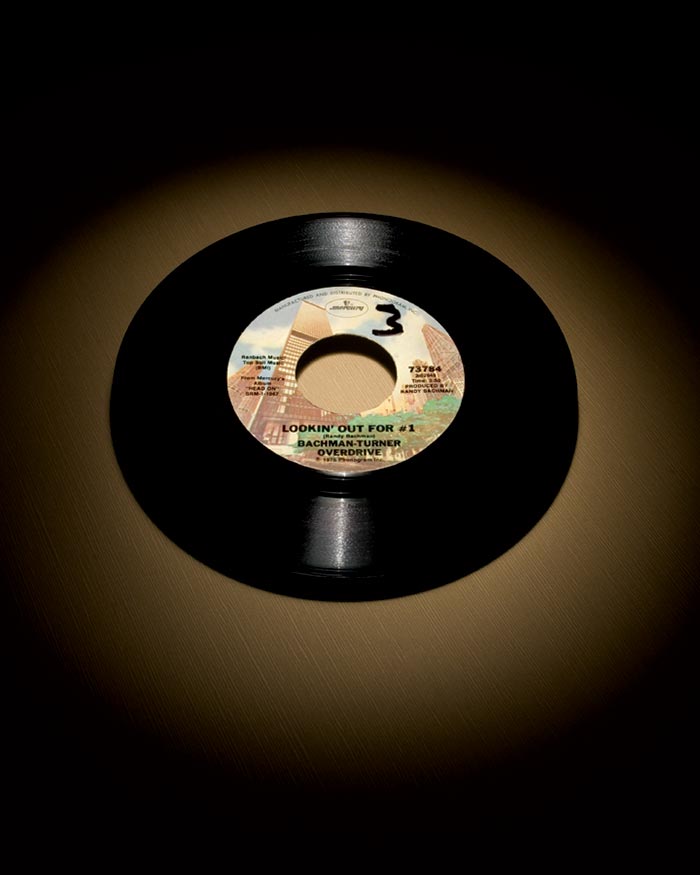
It surprised me that I could walk right up to Joe’s front door. Some Italian big shot, I thought as I lifted my hand to knock. “He’s waiting for you around back,” said a voice out of nowhere. It was early spring, and Joe’s garden was spectacular. There was the arbour, of course, but also fig trees with the sweetest, tastiest figs west of Italy, right here in my riding. “Come inside,” he said, leading me down the concrete steps into his inner sanctum.
I had heard about Joe’s basement, a cross between an office, a reception room, and a political shrine. The long, narrow, wood-panelled room had a desk, a sofa, and along one wall pictures hanging floor to ceiling—Joe, over and over again, with the great and near-great of politics. One picture, not so much political as historic, stood out: a shot of a young, trim Joe in a black uniform, standing at attention with a big, mean-looking Great Dane at his side, both looking in admiration at the far beyond. Il Duce, I wondered? Is that why Joe came to Canada in the 1950s?
Joe’s tiny wife shuffled in silently, set down four small glasses on the coffee table, and left without being introduced. This was business. “Joe, I’d like to run,” I said, almost embarrassing myself by asking for his blessing. He knew all about my plans (which caused me to shudder a bit) and said, “We gotta win, we gotta be the gubberment… I’ll help you with dat.” As if on cue, two young men, Tony and Nick, appeared with a bottle of homemade wine, and we drank a toast to my success. “Dese guys will help you,” Joe said. “They be there the whole way—your sign crew. No one will tear down your signs.” True to those promises, Joe and Tony and Nick never let me down. Every so often in the months ahead, someone would appear and say, “Joe sent me to help out.” Not quite the Mafia don of my overactive imagination, Joe never asked for a favour in return.
The contest for the nomination went smoothly enough. My opponent was a member of the riding executive who told me he’d been out selling memberships before I came along and felt he was entitled to the nomination. Period. But—how to put this delicately?—he seemed to have lost his way. I got an inkling of this when he requested we meet for a drink shortly before the nomination meeting.
He began, “I have a plan… I think I can win there,” he said. “Where? ” I asked. “There, the nomination,” he said. “So if I win there, I figure you can raise money here and I can’t.” “Where can I raise money? ” I asked. “See, I can win there, and you can raise money there and I can’t, so my deal here is this. When I win here, you’ll raise money for me to run there.” Irritated, I attempted to summarize my opponent’s “deal”: “You can win but can’t raise money. I can raise money, so if you win I’ll agree to raise money for you for the election. Is that it? ” “Yes,” he answered, breaking into a grin. “And if I win, what will you do? ” I asked. “You’ll hire me to work for you. I hate my job,” he answered. “No deal,” I said. He looked genuinely surprised.
Nomination night arrived—a scary proposition, even for a newly minted “legend in his own time.” My opponent spoke first. He launched into the Tory government. “You know what we’ve got in Ottawa today? What we’ve got is ffgss—ffgss, I tell you, and they’re going to take everything.” He went on and on in this vein. Finally, someone yelled, “What are ffgss? ” “Fucking fascist goon squads,” my opponent answered triumphantly. The audience erupted. “Shame on you,” yelled someone. “There are children here,” another voice thundered. “And old people, too,” someone added. People got up to leave. My eight-page, neatly typed, earnestly researched, policy-oriented political manifesto about liberalism for our times was not going to get an airing. The audience had to stay. I needed their votes, or ffgs Man might carry the Liberal banner for the riding, an embarrassment to me (never mind the Liberal Party).
The crowd eventually calmed down. I gave my speech, and the voting began. In time, the scrutineers reported the results. I won, in a landslide. My opponent had four votes. Toronto Blue Jay Roberto Alomar got a write-in vote. I had the rest. Other than my opponent, I wondered who else could have voted for him. He had arrived alone, had no visible family support. I eyed my father and my siblings suspiciously.
After being nominated, a former Liberal Cabinet minister took my wife and me to dinner to celebrate. As we began to talk about the realities of political life, a migraine headache took over. A part of my host’s face went missing, or so it seemed. I bolted for home, leaving my wife to absorb all the good news about our new life—another omen, not recognized.
The nominated candidate finds himself in a netherworld, a veritable political Middle Earth. Bathed in self-satisfaction and with a sense of entitlement coursing through my veins, I expected to become an MP and prominent Cabinet minister soon enough. Instead, nothing happened. No newspaper coverage, no reporters or satellite news truck camped on my front lawn, no emissary from party headquarters seeking my input on the election platform. Nothing. I hired a campaign manager and a media adviser.
“No one gives you their vote,” Wagon Master, my campaign manager, told me. “You need to go and get it. You need to take it.” “But there are 10,000 doors in St. Paul’s,” I protested. “Then get started. With an election probably a year away, you can get to every door, maybe twice,” said Wagon Master blithely. “Once the election is called, you can knock on all those doors again.”
People sometimes vote for you simply because you ask them to. Democracy can be a very shallow thing. Pundits say that most people vote for the party or leader, that the local candidate counts for only five to ten percent. Of course, that five- to ten-point swing can be the difference between winning and losing. (Note: pundits can be wrong.) St. Paul’s contained roughly 100,000 people, some 70,000 voters, thousands of houses, and too many apartment buildings for my liking, and the pressure was on: my riding is a bellwether—not once in Canadian political history had St. Paul’s not gone to the winning party. I could be the Second Coming of Christ, but if the party or leader failed me I’d be toast. (Note: pundits are often right.)
Campaigning before an election has been called a blessing: you’re pretty much on your own, there’s no specific platform to defend, and a tyro like me could deflect questions about past Liberal follies with “I’m new and want to make a difference.” When the writ is dropped, you get a script and a warning: defend the party at all costs and promote the platform, the leader, or the team, depending on what the polls say. Freelance on policy, and there’ll be hell to pay.
“You get three hits,” counselled Wagon Master. “If you talk to prospective voters, you may bring them onside. If no one’s home, leave behind some literature and flatter yourself into thinking that the voters were grateful you made the effort to see them. Finally, you create buzz by being in the neighbourhood.” Buzz—that sounded good. It would be all about my earnestness, I expected, my refreshing new face. Instead, “buzz” amounted to “This young man came to my door last evening, said something about running in some election for some party. I can’t remember his name.” I knocked on 5,000 doors and had zero name recognition.
Some people insisted I wasn’t who I thought I was. At one door, I introduced myself as the Liberal candidate in the upcoming federal election. The elderly woman looked very upset. “How could that be? ” she asked. “Has something happened to dear Mitchell? ” “Mitchell? ” I said. “Yes, Mitchell Sharp,” she replied. “He’s just fine, I believe, giving lots of help to the leader as his senior adviser,” I said. “Well,” she said, “then you can’t be our candidate—he’s our MP.” She shut the door. Mitchell Sharp was first elected in 1963. He resigned his seat in 1978. This was 1993.
Some people weren’t sure who they were. A man told me, “I was once an MP.” Embarrassed that the voters’ list was incomplete and that I had not recognized his name, I asked, “When did you serve? ” He looked back at me blankly and turned to his wife. “When was I an MP? ” “I don’t remember, dear,” she said. Some young kids were playing street hockey as I went door to door. One of them asked me, “Hey, sir, are you anybody? ” I wasn’t sure. Maybe I’m Mitchell Sharp, I thought. (Years later, now a big shot MP and parliamentary secretary to the minister of finance, I appeared on ctv’s Canada AM to defend the 1997 federal budget. Reviewing the tape—politicians love to watch themselves on television—along the bottom of the screen, I was identified as President Ronald Reagan. No one noticed. No one said anything. There were no complaints. Maybe I was President Reagan.)
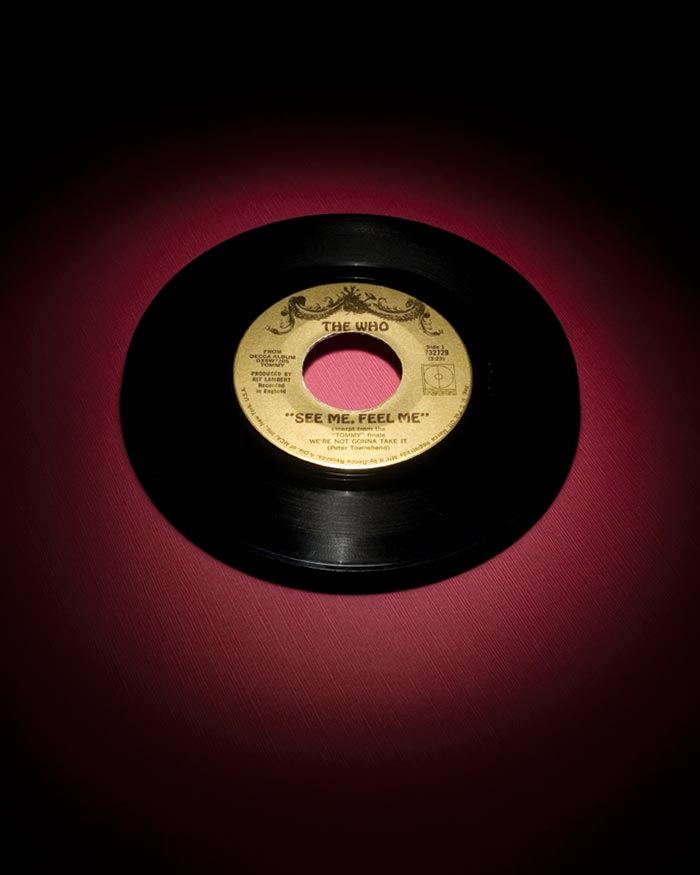
I was told that I needed media training, needed “to be re-packaged” to be more comfortable on-camera. I thought this unnecessary but agreed to go through with it. In a staged interview, I was asked, “Why are you running? ” My answer looped backward in time and thrust forward with hope and enthusiasm. “That was great. Now let’s just try to cut it down a wee bit.” They ran the tape. I had given them my life story. “Let’s do this again after you’ve been to some more doors,” I was told. I was hustled out of the studio. (Note: while campaigning, it is useful to have an assistant interrupt passionate soliloquies with “Barry, we need to move along, other people are waiting to meet you.”)
I learned to appreciate that interlocking bricks are fundamental to the Canadian economy, that many concrete front stoops are falling apart, and to never accept an invitation to “come in for a drink” or to “sit for just a moment.” There are lots of good people out there—some incredulous that anyone would want to be a politician, yet encouraging you to soldier on—but lots of wackos, too. Some are lonely, others obsessed. Some just want to bend your ear. Worst of all, partisans from competing parties will try to tie you up. “Just one more question,” they say.
“Where do you stand on abortion? ” asked the woman through a half-opened door. “I’m pro-choice,” I said cheerily. “That’s all I need to know,” she said, moving to shut the door. “But surely you’re not going to make up your mind based on that one issue alone, are you? ” I said. “You bet I am, sonny boy,” she replied squeezing the door hard against my foot. “Where you stand on abortion tells me everything I need to know about you.” My first encounter with the single-issue voter, and I was lucky to get away with my foot. Turning to my volunteer, I said, “Mark her down as a maybe.”
A few days later, I knocked on the door of a friend’s mother. “Oh, Barry, come in,” she said. “I’m just sitting around with a group of old friends.” Against the best advice I had been given, in I went. Seated in the living room, I was stunned to see a who’s who of pro-choice activists, including Dr. Henry Morgentaler. “Where do you stand on a women’s right to choose? ” he asked. My toes were secure here.
The nastiest people told me immediately that they were voting for the Reform Party. They were pissed off at something or someone, and they were looking for payback. These encounters were short, vitriolic. “Thank you for your time,” I said.
Pleading that an issue was beyond the federal government’s jurisdiction did not fly. “What about traffic? ” “What are you doing about the schools? ” I would be asked. One grandmother said, “You have got to do something about that school,” pointing up the street to Forest Hill Collegiate, one of the city’s best secondary schools. “What’s the problem? ” I asked. “My granddaughter can’t keep up—those Asians do nothing but study.” She didn’t know it, but she was right—immigration is a federal responsibility. I moved on.
A middle-aged man, about six-foot-five, 250 pounds, with a sparse beard and wearing a housedress, said, “I’ve been thinking about the upcoming election, but I’m a little confused.” “Confused? I bet you are,” I said. I’m not particularly proud of that moment. A candidate must be disciplined. I forgot to ask if he/she would take a lawn sign.
In the relentless pursuit of votes, fantasy abounds. A “yes” at the door is bankable; a “no” is a maybe; “maybes” are marked down as “likelys.” One could never be sure. First, people lie to candidates. They say, “Yes, you can count on my support,” when they have no intention of voting for you. They want to be nice or not to be bothered, so they lie. Self-absorbed, strung out, and drunk on his own rhetoric, the candidate usually has no clue what is actually happening. That was me. But if someone slams the door in your face, you don’t go back. Personal injury is beyond the call of democratic duty.
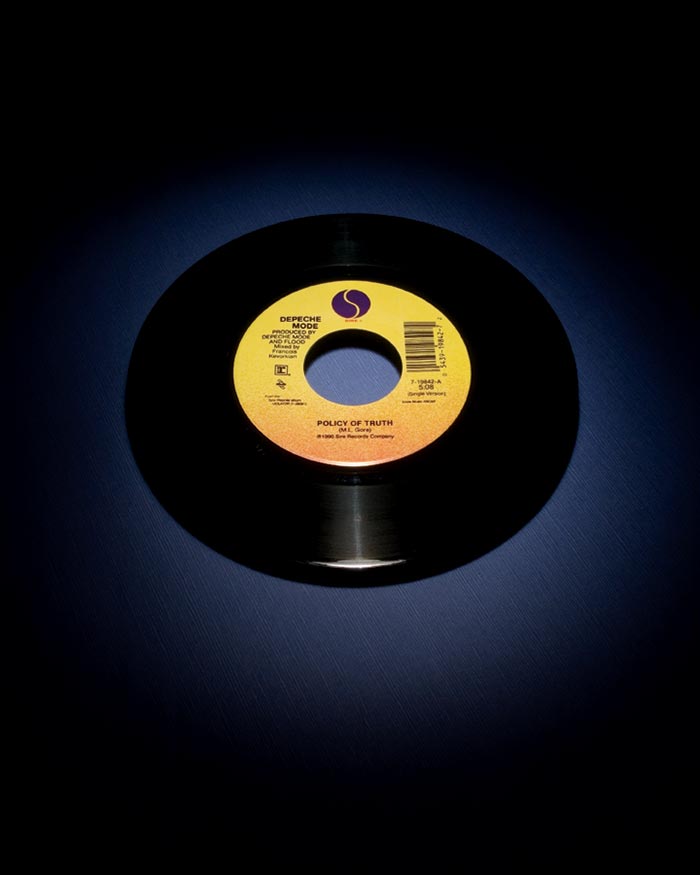
I hated canvassing bus stops and subway stations, but Wagon Master made me do it. The problem is that while there are many people about, none of them want to speak to you. You stand between them and the train to the office, and they are not at their best; or, in the late afternoon, you stand between them and dinner, and they are ready to kill. At a bus stop one morning, a man viciously cursed me and all the other “goddamned Liberals.” Later, in a client meeting, I recognized him. He sat opposite me, the general counsel of my law firm’s largest client. I slid down in my seat and took off my glasses to disguise myself.
“It’s raining and cold,” I complained to Wagon Master. “Keep going,” he said. “But it’s wet and miserable.” “People may vote for you because they’ll feel sorry for you. Ditch the umbrella, look wet and miserable and earnest,” he said. I continued to whine. “Then do apartment buildings.”
The only good news about apartment buildings is that you are indoors. But first you have to get in. Superintendents are preternaturally grumpy and possessed by demons. This manifests itself in the jealous guarding of tenant privacy and a wanton disregard for the Canada Elections Act, which guarantees candidates access to buildings. Best to hope some kind soul invites you in, or to slip in as someone slips out.
Apartment buildings contain many (sometimes a great many) identical floors. As you and your staff take the elevator to the top and start to work down, you quickly become separated and confused in the heat and close air. You hear your name being called, but you don’t know whether to go up or down. Behind you, a tenant finally unbolts her door, and you race back up, only to have the door slammed in your face. You try to slide literature under the door, but too many apartments are hermetically sealed, for medical reasons or experiments, I guess. You spend precious minutes folding and wedging literature between doorknobs and frames. Being stationary, you become light-headed from the mix of odours—curries, chicken fat, sewage, refuse, and Lysol.
My aunt lived in a large apartment building. While canvassing there one night, I promised my hungry and exhausted volunteers that she would invite us in and feed us something. I knocked. “Who’s there? ” my aunt responded. “It’s the Liberal candidate for St. Paul’s,” I replied. “Leave your stuff under the door,” she said. “It’s me, Barry, your nephew,” I said hopefully. “I know. Leave your stuff under the door, dear.” I’m not sure how my aunt voted. “It’s a secret ballot,” she told me after the election.
If your campaign is well organized, you have a voters list, people enumerated for the last election, and it tells you generally whose door you are knocking on. I was nervous approaching the home of a renowned psychiatrist. What does he think of politicians? I wondered. I knocked. He answered. I delivered my spiel. “Why are you running? ” he asked. I gave my well-honed answer about the need for new focus, new ideas, and I gave it with a certain urgency. “No,” he said, “why are you really running? ” I had no answer. Did he know something I didn’t? Maybe running for office is not what you think it’s about, but that and more. Anyway, I had no time to linger and ponder.
An elderly woman with a cane was leaving her house. “Here, let me help you down the stairs,” I said, taking her elbow. “You know,” I continued, “you remind me of my late grandmother. She had a cane just like that.” “Well, then,” she said, raising her cane over my head, “pretend I’m your grandmother, and get the hell off my stoop.” I marked her down as a “probable.” She had restored my faith in old people.
Once in a while, a candidate gets the chance to kill a giant by running against and defeating a Cabinet minister. The external affairs minister was to be my opponent. She was prominent, formidable, and had whacked the Liberals in 1984 and 1988. I loved the idea of taking her on, of launching a brilliant political career as the “giant killer.” She decided not to run. I heard the news from my wife in a phone call. “You shit,” she said. “What did I do now? ” I asked. “You shit,” she continued. “You were supposed to raise your profile and lose. Now you’re going to win!”
I was distressed. I wanted to win, had secretly intended to all along, but only with panache, by knocking over a high-profile opponent. Now my hopes for big-time media attention, fancy celebratory dinners (where I would be called upon to pronounce on the new liberalism), and a Cabinet position were all dashed. Then, out of the blue, I got a media break. The Financial Post Magazine wanted to profile the “new generation of political leaders,” and they wanted to talk to me. Me. Fantastic. The article had the promising subhead “Forget Mulroney, Chrétien and McLaughlin… The boomers are ready,” and the text gushed, describing me as impressive, a real believer. There was a very sympathetic picture of me at my most approachable and earnest. One other newbie politician—John Tory Jr., my law partner and, later, leader of the Ontario Tories—was also profiled. I paid him no mind. This piece was about me; I fell in love with myself all over again.
I soon learned that the article pissed off “the Boss.” The suggestion that he should move on went over with a thud. Heck, the little guy from Shawinigan had barely started, and the Financial Post was saying he should butt out. I made an urgent call to assure him that this idea had not come from me. The article also bemused the civil servants who were warned to watch out because someone “as smart as they were” was coming to Ottawa. For all those raised eyebrows, this was “earned media,” and we took it, reprinted thousands of copies, and dropped them in mailboxes across the riding.
The Tories decided they had to run a star candidate in St. Paul’s and nominated a well-known female broadcaster, “Worthy Opponent”—never smart to give your adversary free publicity by mentioning her name. Despite knocking on 7,000 doors, I still had virtually no name recognition. Worthy Opponent was off the charts.
“Forget her,” said Wagon Master. “Keep knocking.” Wagon Master was tough. He set one condition, and he had one piece of advice. The condition: “I run the campaign, you knock on the doors.” His advice: “Forget your friends and their promises. They’ll do shit.” “But we need a fundraising chair, a volunteers’ chair, a sign chair, a policy chair,” I protested. “We need an official agent, a liaison with the party, a liaison with the community. I’ve got some great people who want to help out.” “I’ll get the people you need,” replied Wagon Master icily. “What will I tell my friends? ” I asked. “Tell them to join the riding association and write a cheque. Maybe one of them can be in charge of raising money. The rest can serve on some committee that you won’t meet with.”
Dog people spoke to me through half-open doors while “Brutus” thrashed about, barking, or through mail slots or intercoms, drowned out by deep, husky growls. I wondered if they would be able to leave their homes to vote. I still have a half-eaten piece of campaign literature retrieved after a tug-of-war with some nasty pet of indeterminate breed. The canine had grabbed hold of my flyer as I attempted to stuff it into a mailbox. Wagon Master warned me that every piece costs money and advised me that dogs don’t vote so I shouldn’t waste campaign material on them. I’m not making this up.
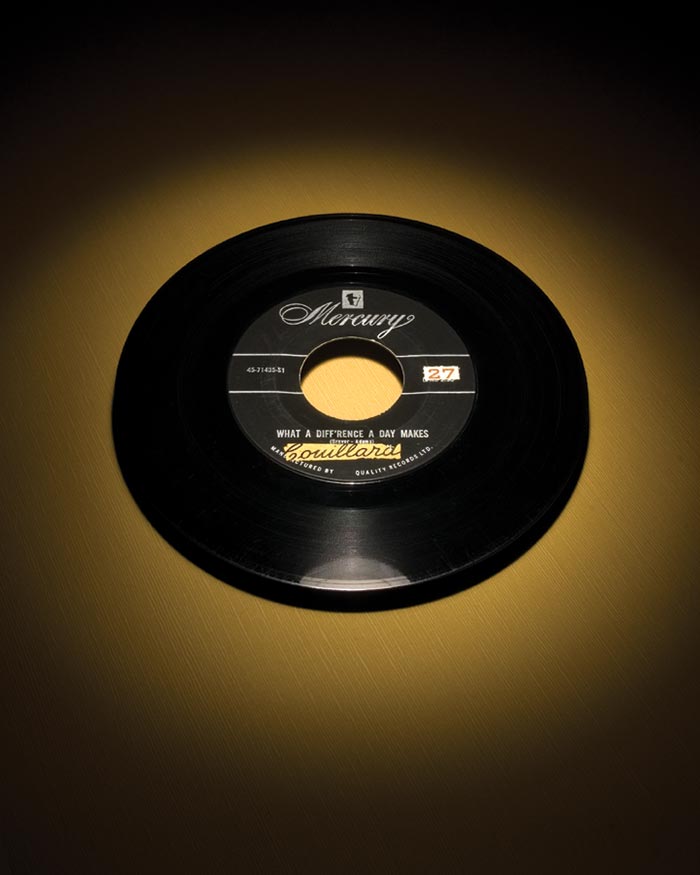
In addition to the usual suspects—Liberal, Tory, Reform, ndp—St. Paul’s featured candidates from the protectionist National Party, the pro-environment Greens, the Marxist-Leninists; plus a candidate from the Natural Law Party, which proposed a brigade of “yogic flyers” to erase the deficit; a Libertarian Party candidate; an Abolitionist candidate who promised to abolish not slavery but interest rates, and whose campaign literature listed her telephone number as 1-800-no–usury; a representative of the Party for the Commonwealth of Canada, whose platform was baffling; and a disgruntled former Liberal who ran as an independent. (The independent’s campaign was so tight for cash that he used literature featuring my signs with my name crudely airbrushed out and his inserted over top.)
It was a circus, and I had a lot of local material to work with. But once the writ is dropped and the election campaign is under way in earnest, you lose all latitude as the media frenzy begins. Your lines are now scripted to follow the party platform, to parrot the daily blast faxes or emails from the war room setting out the day’s messages, or explaining away yesterday’s screw-ups.
When journalists live in your riding, they can kill you, and hordes of them call St. Paul’s home. They can also make your day. Television reporter Colin Vaughan did a live feed from in front of my campaign office, speaking of the challenge Worthy Opponent was facing. He said, “She’s got a battle on her hands from Liberal candidate Barry Campbell,” who, he went on to say, “had been parachuted into the riding by the Liberals.” I decided to leave it alone, but my seven-year-old son wrote Vaughn a letter. “My daddy wasn’t parachuted anywhere, he drives to work,” he scrawled in crayon. We faxed the letter to Vaughan. He read it on air and apologized to my son for getting it wrong—campaign gold.
Nominated candidates may receive money from the party (which has to be paid back). You will receive pamphlets you must buy, and a candidates’ handbook to help you prepare. The Liberal handbook was chock full of policy Q&As, which, they hoped, you would memorize and parrot back to constituents. Not to be shared with anyone was the section about family life. This chillingly frank description was the equivalent of the warning labels on prescription drugs. The political spouse was instructed to take over all household chores, to free the candidate from mundane day-to-day tasks so he could focus on what is, after all, the most important task: getting elected. Reading the “Instructions to Candidates,” I felt like a prisoner about to lose his belt and shoelaces. I put the Liberal handbook away and pretended I knew what I needed to know. I never showed it to my wife.
She reluctantly agreed to do some canvassing on my behalf. One night, she called me at the campaign office at the end of a gruelling session. She had just finished bringing someone over to the Liberal cause, she reported, but he had gone into convulsions and collapsed. She had had to enter his apartment and call 911. When asked where she was, she couldn’t tell the dispatcher. She looked around for a piece of mail, and just as she was reading out the address the man came out of it. “He wanted to know what I was doing in his apartment reading his mail!” she told me. “He had no recollection of our discussion before his seizure.” “You mean you lost the vote? ” I asked. She hung up on me.
You see all the same faces at all the all-candidates’ meetings. It’s not that everyone starts to look the same; they are the same people. Some people always have one more question, one more concern. You give it your best shot, but one week later they’re back. They just will not go away. I was nervous about these meetings, but not as nervous as Worthy Opponent. Sometimes she was a no-show; other times, she appeared, made a short opening statement, and bolted before the question period. I had great fun with this—taking every opportunity to say, pointing to the empty chair, “Now, if my opponent had stayed around to respond…” To get at our inner beings, the local newspaper, the Village Post, asked each of us, “What is your favourite movie? ” I tried to be smart and hip, and said The Graduate. Worthy Opponent said The Crying Game. I figured I had a real shot at this.
Things went south for the Tories in the 1993 election almost from the start. Leader Kim Campbell’s big gaffe—“an election is no time to discuss serious issues,” later combined with distasteful attack ads—caused Tory support to implode almost overnight. It was palpable: lifelong Tory voters were embarrassed and angry. It wasn’t so much what we were doing—or, sadly, even how many doors I knocked on (maybe 20,000). It was that they were on a death march. But even when you are ahead, perhaps even way ahead, Wagon Master won’t tell you. “Best not to burden the candidate. It will put him off his stride.”
Candidates find out late on election night whether they’re bums or heroes. Those are the two options. Losers console themselves and their supporters with speeches full of necessary fictions: “We ran a good campaign, it just wasn’t meant to be this time,” etc., or, if they are angry and clearly heading back to private life, “The party [or leader or campaign team] let us down.” Either way, for losers it’s over.
My law firm hosted a reception in my honour after the election. At the dinner following, suddenly elevated, I was seated with former Ontario premier Bill Davis, also a partner of the firm. He gave me my first real lesson in politics. I was offered butter by the waiter and declined it. Davis snapped, “Mr. Campbell will take the butter.” The startled server put a pat of butter on my plate, and the former premier ran his knife through it. “You may be ideologically challenged being a Liberal,” he said, “but the dairy industry is extremely important in this province. Always take the butter and smile at the server; he votes, too.” Bill Davis may be congenitally Tory, but he is a wise politician, even if he didn’t vote for me.
I would soon learn other lessons: to say what I didn’t believe; to not say what I believed; to apologize without actually doing so (“I am sorry if anyone was offended by what I said” is a conditional apology). Some lessons are hard to learn, and some are never learned. I think I did master, however, how to create distance between my brain and my mouth; that is, to pause before speaking so that the resulting statement would make an acceptable headline. I learned how to write an endorsement for something or someone, leaving enough wiggle room to qualify that endorsement or even extricate myself altogether. I learned to never answer questionnaires; how to look like I was listening when I wasn’t; to make people who beseeched me about this or that feel good about their protest, even if I did or could do nothing for them. I would learn to be patient, that I couldn’t fix everything and didn’t want to. I would learn not to draw a line in the sand, to pick a few issues to focus on, to pick my spots and not lose credibility by speaking out on every issue. I would learn how to live to fight another day. I would eventually learn not to trust the media, even when trust was warranted, and to never be sucked in by an Opposition motion, no matter how compelling. I eventually learned how to be a partisan loyalist and a relentless self-promoter. I had to get comfortable never putting my hand in my pocket to pay for something; letting others do things for me; and participating in meetings by incantation where each participant recited scripted remarks and no one left any wiser. I had to learn to give speeches drafted by others, “to be read into the record,” and to vote on things because the Whip told me to. I would have to learn all these things and not lose my soul. I would have to learn all this, and still be effective somehow or lose my mind. For now, all that really mattered to me was that I had won. On to Ottawa.

